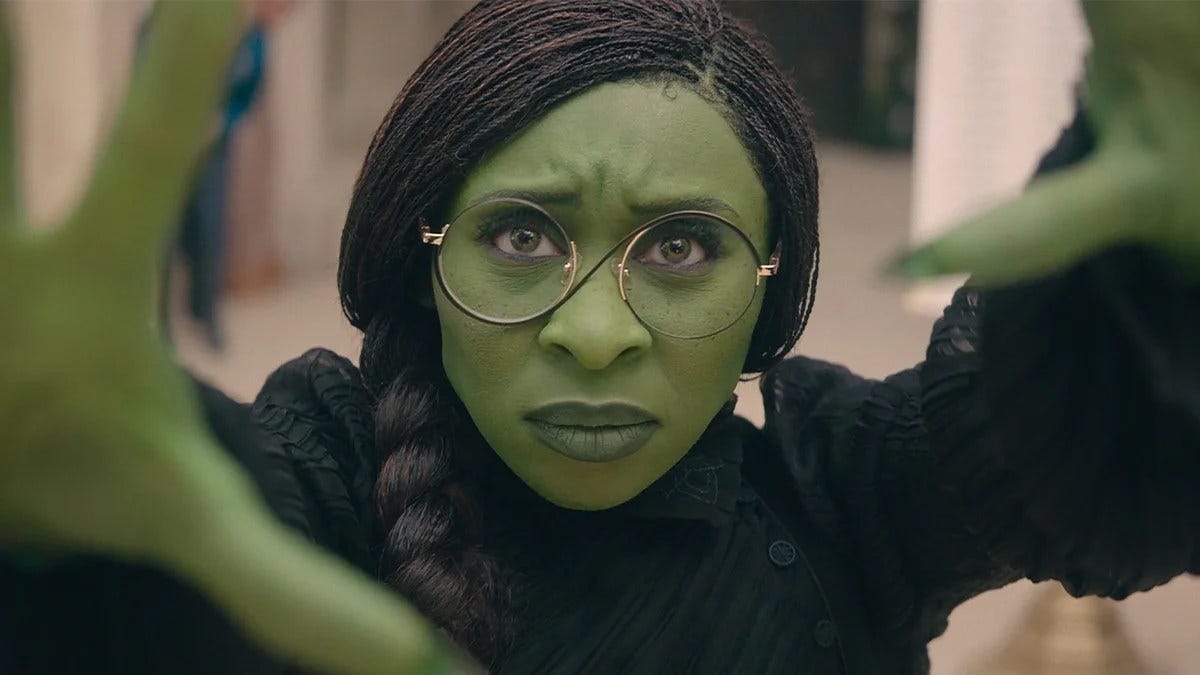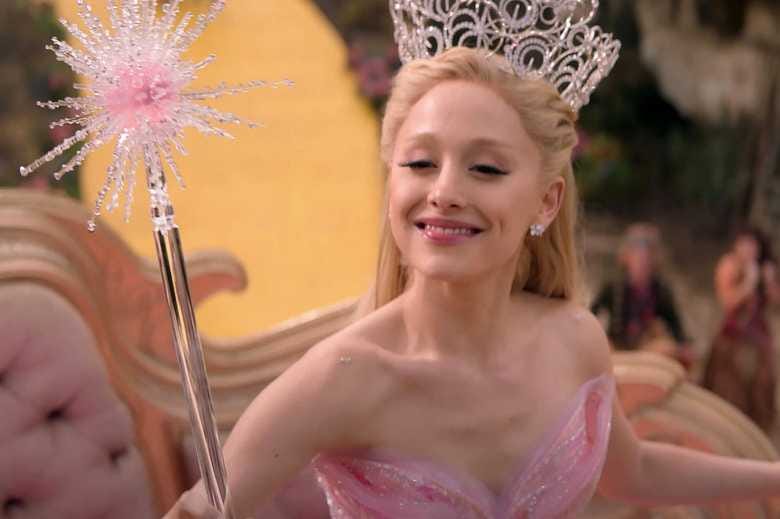Beyond the Bubble: Exploring Childhood Trauma in the Wicked Movie
What does Wicked tell us about our childhoods?
The ‘Wicked’ movie, based on the hit Broadway musical, has already generated a whirlwind of excitement. This whirlwind of excitement has mostly been centred around me, to be honest.
WARNING: spoilers ahead maybe possibly definitely.
Elphaba and Glinda's iconic story being brought to life on the big screen was what took me to the cinema yesterday but I realised that the film also offers an opportunity to delve deeper into the often-overlooked theme of childhood trauma woven throughout the narrative.
Elphaba’s Early Rejection
Elphaba's green skin immediately marks her as different in the eyes of Oz's society. This physical difference leads to ostracization and ridicule from her peers and even her own father. The trauma of constant rejection and feeling like an outsider shapes her worldview and fuels her rebellious spirit.
Elphaba's father, preoccupied with his political ambitions and ashamed of his daughter's appearance, fails to provide her with the love and acceptance she craves. Glinda, despite being surrounded by material comforts, yearns for genuine connection and struggles with her mother's emotional distance. This lack of parental support leaves both young women feeling isolated and vulnerable.
From the moment she arrives at Shiz University, Elphaba becomes the target of relentless bullying. Her classmates mock her appearance, whisper behind her back, and exclude her from social activities. This constant harassment reinforces her feelings of inadequacy and deepens her sense of isolation. Glinda, initially complicit in the social ostracization of Elphaba, eventually recognises the pain it causes and chooses empathy over conformity.
The Impact on Self-Esteem and Identity
The cumulative effect of these traumatic experiences profoundly impacts Elphaba's self-esteem and sense of identity. She internalises the negative messages she receives from others, believing herself undeserving of love. This self-loathing contributes to her anger and resentment, ultimately driving her towards a path of defiance. The movie tells us a few things:
Finding Solace in Friendship: Despite the challenges they face, Elphaba and Glinda find solace and strength in their unlikely friendship. Their bond provides a safe space for vulnerability and acceptance, offering a counterpoint to the trauma they have endured. Through their connection, they begin to heal and discover their true selves.
The Importance of Representation: By exploring the complexities of childhood trauma, ‘Wicked’ offers a powerful representation of the lasting impact of early adversity. The film has the potential to spark important conversations about bullying, prejudice, and the importance of empathy and acceptance. It reminds us that even in a fantastical world, the pain of childhood trauma is real and deserves to be acknowledged and addressed.
And in summary?
‘Wicked’ is more than just a spectacle of music and magic. It is a story about overcoming adversity, finding your voice, and the transformative power of friendship. By exploring the theme of childhood trauma with sensitivity and nuance, the film has the potential to resonate with audiences on a deeply personal level and leave a lasting impact.
Can you help me?
I’d love more people to talk about ‘Wicked’ with, but feel free to consult me for a chat about this or anything else.
Please get in touch:
Final Thoughts
If you are thinking of taking your child to see the movie for the fifth first time, it might be worth prompting some gentle conversations with them about how these themes are explored in the movie. Maybe asking if they ever feel like Elphaba—or like Glinda. Both are flawed and wonderful characters.
Did you like this post? Think you have a friend who might want to read it?
Make sure you don’t miss any of my other posts:




